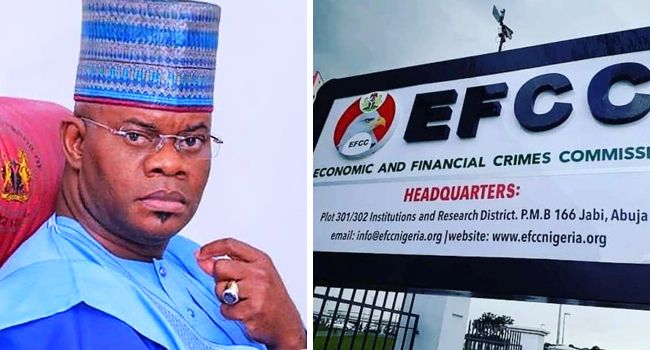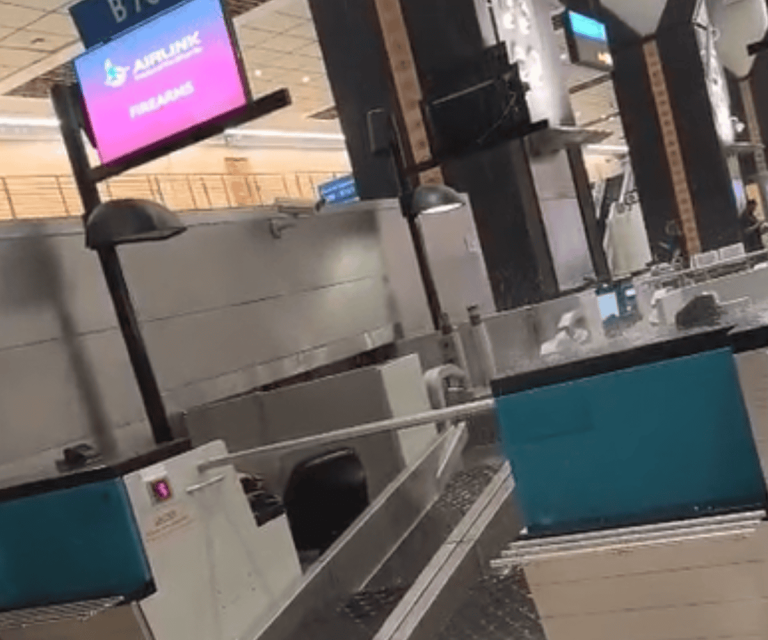
A prosecution witness in the ongoing money laundering trial involving former Kogi State Governor Yahaya Bello has told the Federal Capital Territory (FCT) High Court that he was never the account officer for the Kogi State Government House Administration Account.
The witness, Mshelia Bata, who serves as a Compliance Officer with Zenith Bank Plc, made the clarification on Thursday while being cross-examined by Joseph Daudu (SAN), counsel to the former governor.
Bata admitted that although the account in question was domiciled at the bank’s Lokoja branch, he never worked at that branch and was therefore not responsible for handling its operations.
He also confirmed that he was not the maker of the exhibits tendered in court by the Economic and Financial Crimes Commission (EFCC).
According to him, Abdulsalam Hudu, whose name appeared in several of the transactions presented as evidence, was duly authorized to operate the account.
“Abdulsalami Hudu’s name appears on the account mandate as one of the signatories,” Bata told the court, explaining that anyone whose name appeared on the mandate could lawfully represent the organisation.
The witness further noted that while a relationship manager would typically have more intimate knowledge of the account’s daily operations, a compliance officer primarily ensures regulatory adherence.
Reviewing Exhibit S2, Bata told the court that the Government House Administration Account was opened in 2005, with Chris Enefola, Onekutu Daniel M., and Abdulsalami Hudu listed as the original signatories.
He added that Oricha Shaibu was introduced as a signatory in 2016, Ahmed Idris in 2018, and Alhassan Omakoji in 2019, as reflected in the account mandate.
Bata confirmed that the Central Bank of Nigeria (CBN) withdrawal limit for government accounts is ₦10 million, while that for individual accounts is ₦500,000, stressing that the transactions in question adhered to these limits.
“The ₦10 million withdrawal limit applies to all signatories and authorized representatives of the account,” he explained. “Any person operating the account within that framework is deemed a legitimate representative.”
Under cross-examination, Daudu asked the witness to identify the beneficiaries of a series of ₦10 million withdrawals made on December 15, 2017, and to clarify discrepancies in the spellings of names that appeared on multiple withdrawal instruments.
“Since banks are usually strict with name consistency, how do we confirm that the person involved in all 19 transactions is the same individual?” Daudu asked.
However, prosecution counsel, Kemi Pinheiro (SAN), objected, describing the question as speculative.
“A witness can only testify to facts within his personal knowledge — not assumptions,” Pinheiro argued.
Daudu countered that the question was valid, insisting that the discrepancies in the names were a factual issue.
“The witness has already admitted there are three variations of the same name. It is only through the withdrawal instruments that we can verify identity,” he maintained.
Responding, Bata said he could not speculate on the inconsistencies.
“Without the introductory documents, I would not know why the names appeared differently,” he stated.
At an earlier hearing, Bata had confirmed multiple withdrawals of ₦10 million each from the Kogi Government House account, all of which, he maintained, were within regulatory limits.
Following the exchanges, Justice Maryann Anenih adjourned the case to January 15 and 16, February 10 and 11, and March 10, 11, and 12, 2026, for continuation of trial.



